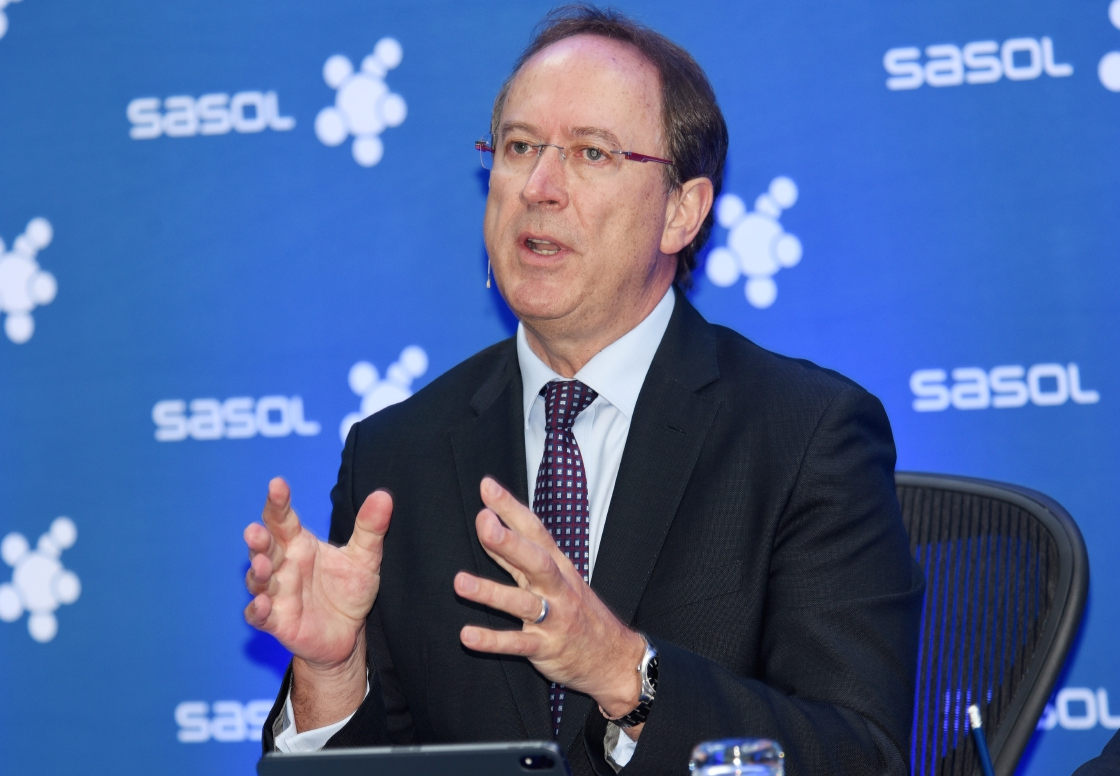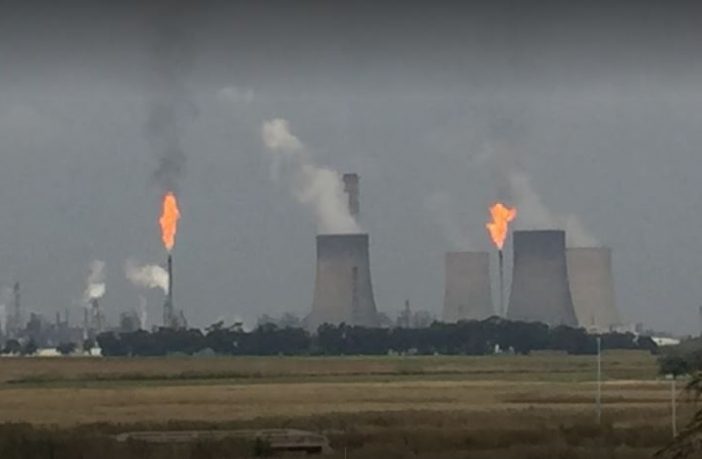- Sasol delivered their interim financial results for the six months ended 31 December 2023 yesterday.
- Sasol’s reports that performance for the first six months of 2024 continued to be negatively impacted by the continued volatile macroeconomic environment, with weaker oil and petrochemical prices, unstable product demand and continued inflationary pressure.
- Sasol, largely regarded as one of the filthiest company’s in the world, is the world’s largest greenhouse gas point source emitter. Read more
Sasol says that despite some operational improvements in South Africa, persistent underperformance of the state-owned enterprises involved in Sasol’s value chain and the weaker global growth outlook continue to impact Sasol’s business performance.
Revenue of R136,3 billion is lower than the prior period of R149,8 billion, mainly as a result of the lower chemical product prices across all regions. Earnings before interest and tax (EBIT) of R15,9 billion is R8,3 billion (34%) lower than the prior period. The variance to the prior period is mainly due to lower revenue and lower gains on the valuation of financial instruments and derivative contracts, offset by lower chemical feedstock prices in Europe, Asia and the United States of America (US).
The current period includes remeasurement items of R5,8 billion mainly due to:
- Impairments of the Secunda liquid fuels refinery cash generating unit (CGU) of R3,9 billion driven by a further deterioration assumed of the macroeconomic outlook, including Brent crude oil and electricity prices, resulting in the full amount of capital expenditure incurred during the period being impaired; and
- Impairments of the Chemicals Africa Chlor-Alkali & PVC and Polyethylene CGUs of R1,2 billion due to lower selling prices associated with reduced market demand.
Last year Sasol introduced a R35.3 billion impairment on the Secunda plant as a result of “cost assumptions and a revised production profile” based on its plans to reduce pollution from the site. Sasol’s Secunda plant is the worlds biggest emitter of greenhouse gases. The impairment came following the National Air Quality Officer declining Sasol’s application, in terms of Clause 12A of the Minimum Emission Standards, to be regulated on an alternative emission load-basis for the sulphur dioxide emissions from the boilers at its Secunda Operations’ steam plants from 1 April 2025 onwards.

Total annual compensation for outgoing CEO, Fleetwood Grobler, was R41million for the year to June 2023. Image credit: Freddy Mavunda
Sasol appealed the decision and the Minister of Forestry, Fisheries and the Environment, Barbera Creecy, is expected to make an announcement on the matter next month. Delivering the interim financials yesterday, outgoing CEO of Sasol, Fleetwood Grobler said that they are looking at coal de-stoning to reduce their coal consumption by 25% plus a host of other initiatives. He added that a refusal by the Minister to grant a reprieve would result in the phased shutdown of Secunda.
Listed on the JSE, Sasol Ordinary Shares have plunged 42,06% in the last 6 months:
Author: Bryan Groenendaal
















